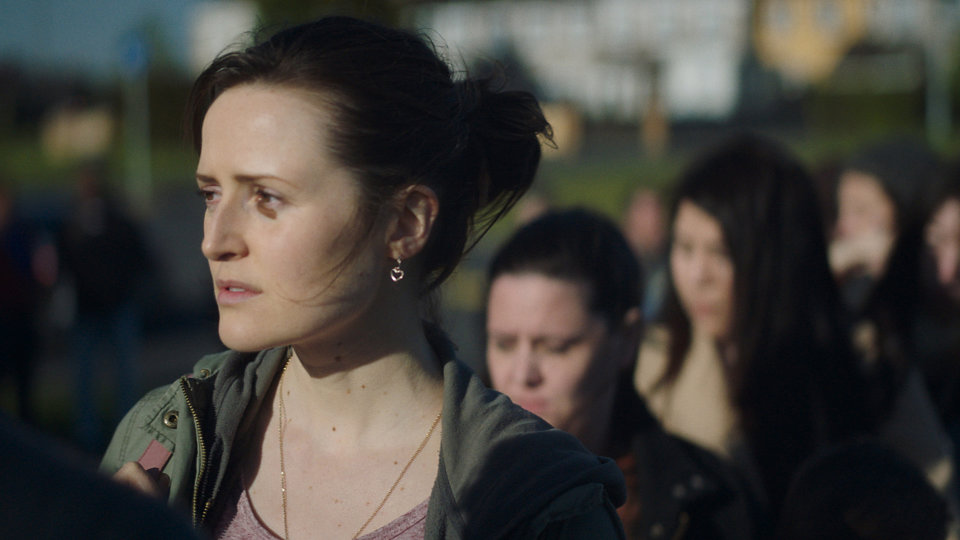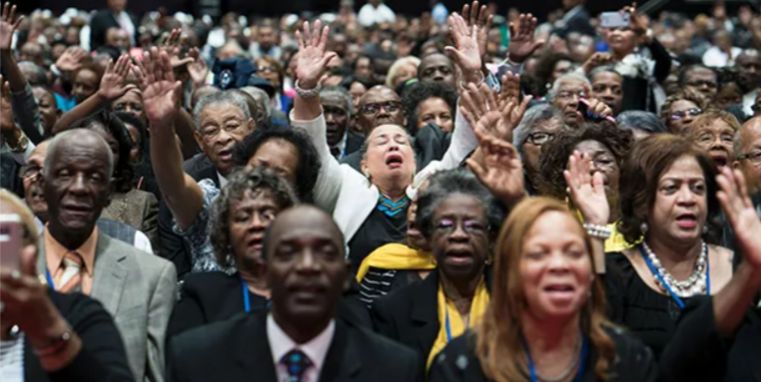(ThyBlackMan.com) She’s building from the ground up. Her self-esteem, confidence and a home.
Physical, emotional and psychological abuse wrecks its victims and can produce pervasive trauma. That’s what’s on view in this well-crafted story about a survivor. A mom trying desperately to regroup with her two young daughters and escape an evil husband’s savagery. It’s a premise that in the wrong hands could be either repulsive or cloyingly melodramatic. Under actor/writer Clare Dunne’s sensitive guidance, this journey, though intense, is most often inspiring and not affected.
Dunne was inspired to write the script after hearing from a female friend who was declaring herself “homeless,” upon realizing she and her children had no place to live. It was a gut check for the Irish actress who decided to write her first screenplay and put her thoughts into motion.
Dublin, Ireland. Sandra (Dunne, Spider-Man: Far from Home) is at home with her sweet little daughters eight-year-old Molly (Molly McCann) and Emma (Ruby Rose O’Hara) who is six. The front door opens. Hurriedly, and knowing what is to come, the mother pushes her daughters out of the back door, reminding Molly to take her lunch box.

After spewing a few volatile words, her menacing husband Gary (Ian Lloyd Anderson, Game of Thrones) erupts, beating her unmercifully, throwing Sandra to the kitchen floor, savagely pounding her again and again. Molly runs to a neighborhood convenience store. She screams at the clerk that her mother needs help, opens her lunchbox and taped under the lid is the address of her home, the place where the cops should go.
Rarely do films start so effectively with such a telling, explosive inciting incident. Viewers enter in the middle of the action, with no setup, no backstory. They watch and witness life-threatening peril and are horrified. Dunne’s and co-scribe Malcolm Campbell’s writing, Phyllida Lloyd’s (The Iron Lady) direction and cinematographer Tom Comerford’s filming are so tight, you’re pulled into this high-crisis first scene and your eyes can’t avoid the cruelty of domestic violence.
In seconds, the protagonist and antagonist are identifiable and what’s at stake is clear. You’re as haunted and traumatized as the victim. You’re all in on Sandra’s road to recovery. Hoping she can find a new life. Hoping she can rebuild—even though a devil looks over her shoulder.
As Sandra deals with the welfare bureaucracy, endures living in a snobby airport hotel with her kids, works part time jobs and is forced to share custody with the man who beat her, you stay riveted to her quandary. Can she make it? Can this overburdened mom survive? It’s a challenge women in similar situations can face anytime anywhere. A social problem that now has another face attached to it. That’s thanks to the insightful writing and lifelike characters that permeate the film until every last drop of will, determination and luck has been drained out of Sandra.
The creative device that Dunne’s has smartly envisioned for the mother who has zero, except her kids’ love and the kindness of strangers, is the simple dream of building a home. A refuge and fortress for her family. It’s a stirring metaphor, a tangible bit of hope and a ploy not used in this type of cinema before. Just a little touch of DIY spirit and some moxie. The kind that makes viewers root for this brave woman to pull her life back together and start anew.
When Sandra and her ragtag group of friends raise the first wall frame of her future home, it’s a revelation. Building a house. Building a dream. Self-empowerment… Yet, you’re not sure if she can breathe easy for too long because the ever-threatening husband is never out of mind. For every step forward, there’s one step back. It’s a narrative choice that’s strong in the short run, but almost wears thin in the long term. Especially when it looks like the protagonist may not have the last word about her destiny or her antagonist’s fate—which is a screenwriting 101 no-no.
Excellent ensemble acting prevails. Partly because Dunne and director Lloyd have torn a page from the Ken Loach (Sorry We Missed You) and John Cassavetes (A Women Under the Influence) school of filmmaking: emphasize blue color life; focus on the authentic and create accessible characters. Also, partly because the cast underplays their roles: Harriet Walter (Atonement) as the benevolent boss; Anderson the emotionally disturbed husband; Conleth Hill (Game of Thrones) the reluctantly helpful contractor and Daniel Ryan as his son Francis; and the incredibly believable Molly McCann and Ruby Rose O’Hara as the daughters.
At times what’s on view feels like a strong indie movie that veers slightly into TV Movie-of-the-Week territory until stark drama rears its head and stays for good. The constant obstacles are balanced by soul-lifting moments that peak in a testy courtroom scene. Gary has dragged Sandra into a custody battle and is hammering her emotionally while an inquisitorial attorney wonders why Sandra stayed in her marriage if her husband was so brutal. The hard-working mom, who has suffered every indignity including having her children witness her beatings, fights back: “You ask me why I didn’t leave him, when you never ask why he didn’t stop?”
For the most part, Dunne achieves her goals as a writer, social commentator, women’s advocate and soul-searching actress. Her intelligence and creativity are a certain sign of good things to come. If her well-conceived screenplay almost seems a bit predictable at times, it is—until it isn’t. Be prepared to be jolted. Take nothing for granted.
Trailer:
In theaters December 30, 2020 on Amazon Prime Video January 8, 2021.
Written by Dwight Brown
Official website; http://DwightBrownInk.com
















Leave a Reply